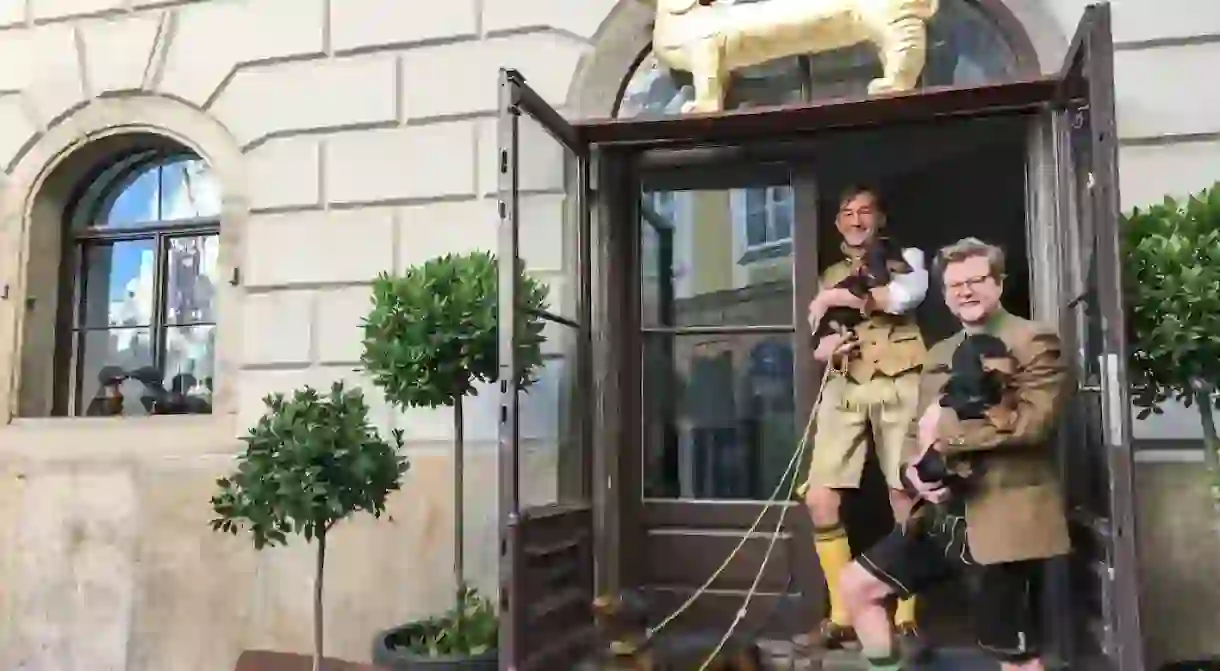Germany’s Most Unusual Museums You Need to Visit At Least Once

Currywurst, sausage dogs and David Hasselhoff are only a few of the odder things Germans seem to have a soft spot for, to the point that some institutions have collated entire exhibitions dedicated to them. We’ve compiled a list of the most unusual museums scattered across the country that all are somewhat peculiar, and yet fascinating or downright hilarious with their collections. Check out the full list below.
German Hygiene Museum
Museum

Don’t let the name put you off of visiting. Granted, the name doesn’t sound too appealing, but the uninspiring concrete walls of the German Hygiene Museum in Dresden hold some pretty interesting facts about us, the human species, that have little to do with disinfectants or toothbrushes. The permanent exhibition rather deals with everything revolving around our bodies and answer questions along the lines of ‘what does growing old feel like?’ and ‘why do we feel embarrassment?’
Dackelmuseum
Museum

The Bavarian city of Passau opened the world’s first museum entirely dedicated to Germany’s favourite dog breed: the Dachshund. The two curators spent 25 years collecting sausage dogs in all shapes and forms from porcelain, glass or fabric, Christmas tree ornaments, stuffed animals or toys, printed on posters, accessories and more. Now more than 4,500 exhibits fill the glass vitrines of the Dackelmuseum.
David Hasselhoff Museum
Museum

Now, you may not know this, but Germans maintain somewhat of an obsession for David Hasselhoff. Baywatch and Nightrider marked the first steps on the way to a cult icon in Germany and his musical hit Looking for Freedom catapulted him to No. 1 on the West German charts. Some claim the song helped reunify Germany in 1989. The David Hasselhoff Museum is located in the basement of the Circus Hostel in Berlin and celebrates the life and works of ‘The Hoff’, cementing his status as a cult figure even further.
German Currywurst Museum
Museum
Germans devour an estimated 800 million Currywurst sausages every single year – quite the figure considering that the popular snack emerged in the post-war era when food was scarce. The German Currywurst Museum is located in Berlin’s city centre, only a stone’s throw from where Checkpoint Charlie once marked the border between East and West Berlin, and tells the history of the wurst. The exhibition is surprisingly interactive and equipped with a Currywurst-themed computer game, a spice storage and, of course, a food stand where you can snack on Germany’s favourite sausage.
Museum of Sepulchral Culture
Museum

A more morbid approach is taken by the Museum of Sepulchral Culture in Kassel, which explores customs, rituals and culture revolving around deaths and burial ceremonies. On display are countless gravestones, skulls, coffins, burial clothes and accessories, jewellery and more. The vast collection takes you on a journey all the way back to the Middle Ages, as well as around the world to look at the Tibetan dance of the dead and Ghana’s colourful burial ceremonies.
Design Panoptikum
Museum

The collection gathered in the Design Panoptikum is best described as a hodge-podge of extraordinary objects – some of them on verge of being disturbing and unnerving, others are simply wonderfully weird. Here, the rooms are filled with outdated medical equipment, bizarrely-shaped home décor and body parts that are miraculously attached to one another with metal parts. It all makes more sense if you take the owner and curator Vlad Korneev up on his offer to show you around and tell you what the individual items are all about.
Watering Can Museum
Museum

Giessen is a university city 30 kilometres south of the beautiful Marburg, but the word also means ‘to water’ in German. A local artists’ group took it upon themselves to establish a museum dedicated to, well, watering cans. The result is a delightful collection of watering cans in all shapes and forms – made from plastic, pressed metal or ceramics, the bunch is composed of uninspiring containers from the nearby DIY store, chic designer cans, tawdry objects, hand-painted porcelain cans and vintage brass items.













